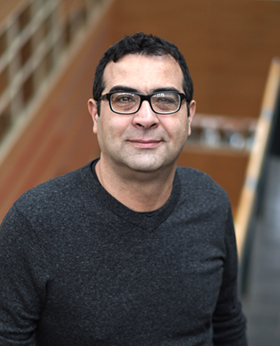Luca Tateo has a PhD in psychology of communication and has been a Marie Curie Fellow. He has been an Associate Professor in Epistemology and History of Cultural Psychology at Aalborg University, Denmark and an Honour Associate Professor at University of Sydney, Australia.
— I have studied imagination as higher psychological function, the cultural psychology of education, and the epistemology and history of psychological sciences in order to reflect upon the future trends of psychological research and related methodological issues. I am editor in chief of the book series “Innovations in qualitative research”, IAP and co-editor in chief of the peer-reviewed journal “Human Arenas. An Interdisciplinary Journal of Psychology, Culture, and Meaning”, Springer.
Ecological psychology and lack of epistemic legitimization
– My new research is developing in two main directions:
- Developing a new look at ecological psychology, by creating a dialogue between cultural psychology, ethnoecology and biosemiotics. Social sciences are still considering human beings as detached from their ecosystem, opposing individual and environment, biology and culture. Humans are neither the outcome of a genetic program nor the mere product of social rules. Ecological psychology focuses on the study of local systemic relationships, that is we are part of unique local configurations of humans and non-humans, local solutions to general existential problems. The ecological approach allows us to appreciate the uniqueness of any individual as part of an organic whole, including environment, institutions, collective movements.
- Exploring the concept of “epistemic injustice” in the field of education, with a particular focus on special needs. Miranda Fricker (2007) defines epistemic injustice as the lack of epistemic legitimization for some people on the basis of a prejudice or cultural habit. It occurs when people underestimate someone’s statements on the basis of a prejudice (e.g. women are too emotional, or children are too naïf, or person with autism do not understand emotions, etc.). Or if in some cultural contexts, there can be no categories available to interpret someone’s experience. So, the experience is overlooked or downgraded (e.g. before the emerging of the concept of “sexual harassment”, women’s unwanted sexual assaults were interpreted as “flirting”, not recognizing the negative experience of victims, or before the emerging of the concept of “hyperactivity disorder” children were just labelled as “troublemakers”, etc.). In order to build better, more inclusive, democratic, just and fair societies, we must be able to recognize the conducts, conscious or unconscious, which have unfair consequences, or harm morally and psychological persons in any kind of special conditions
Borderless science is a universal resource
— I firmly beleive that borderless science is a universal resource of humanity and should contribute to construct peace, equity and to defend the planet. I am a world citizen, and my background is in commnication , psychology, education and humanities.
According to Tateo, the psychologist is a humanist and must be educated in art, philosophy, anthropology, history, life sciences, social sciences. Personally, he gets inspiration from any experience that triggers his curiosity and thinks that every product of human activity is a legitimate object of study for psychology.
Human experience is a complex combination
Psychology should develop towards the study of the human being as a whole. We must understand human experience as a complex combination of thought, emotion, affect, action, values, ambivalences.
